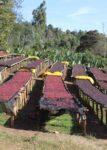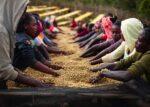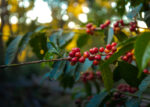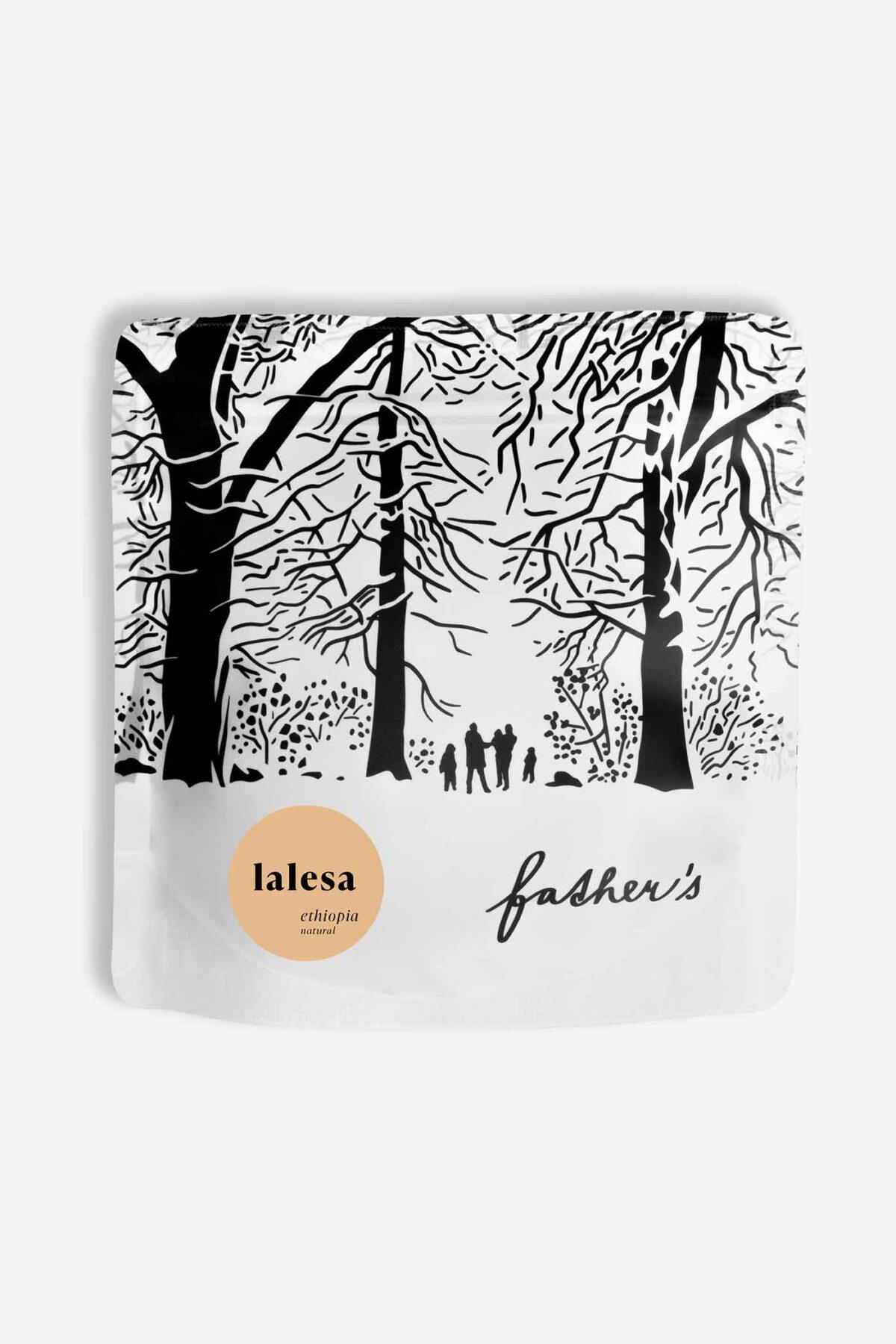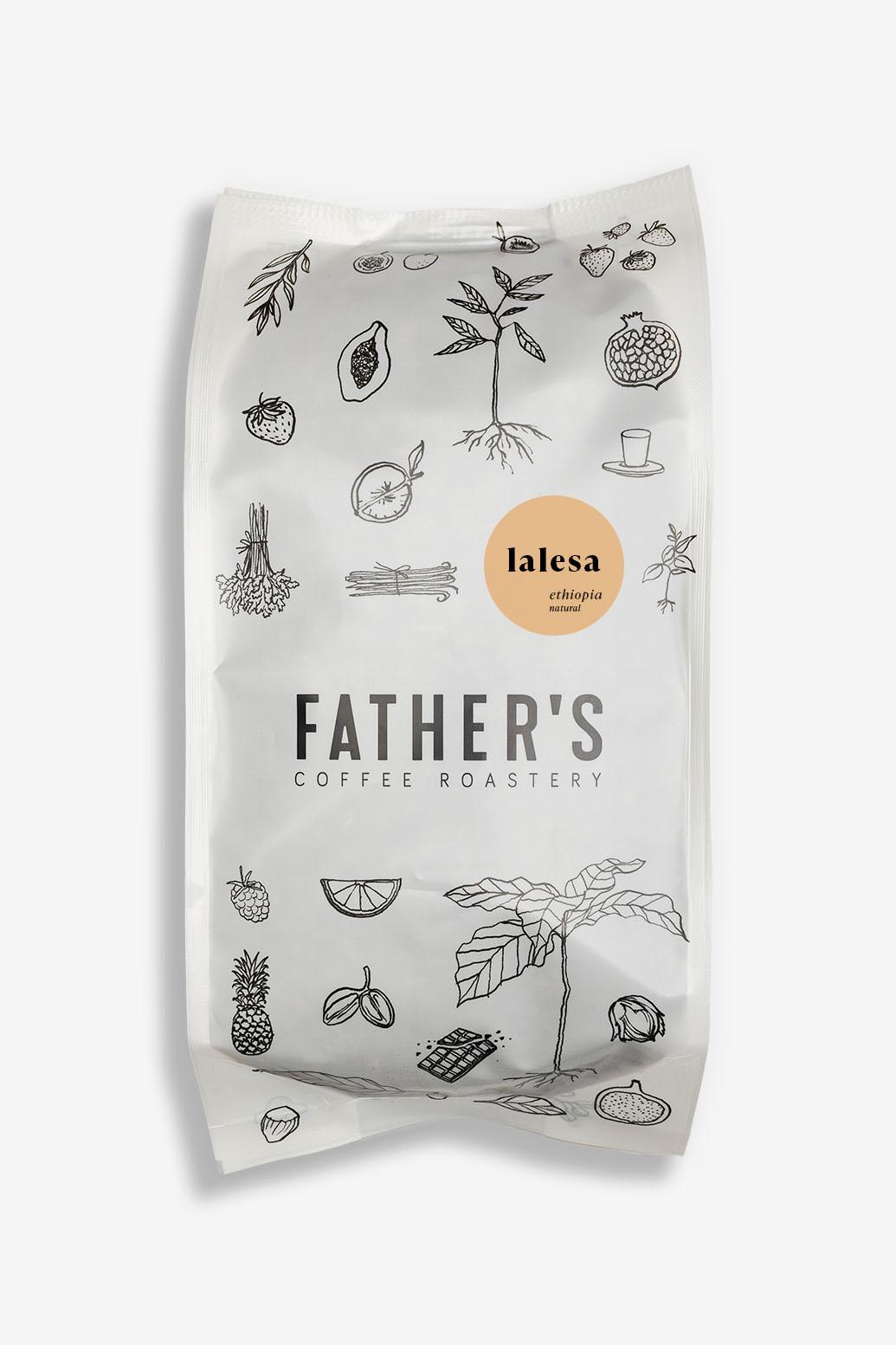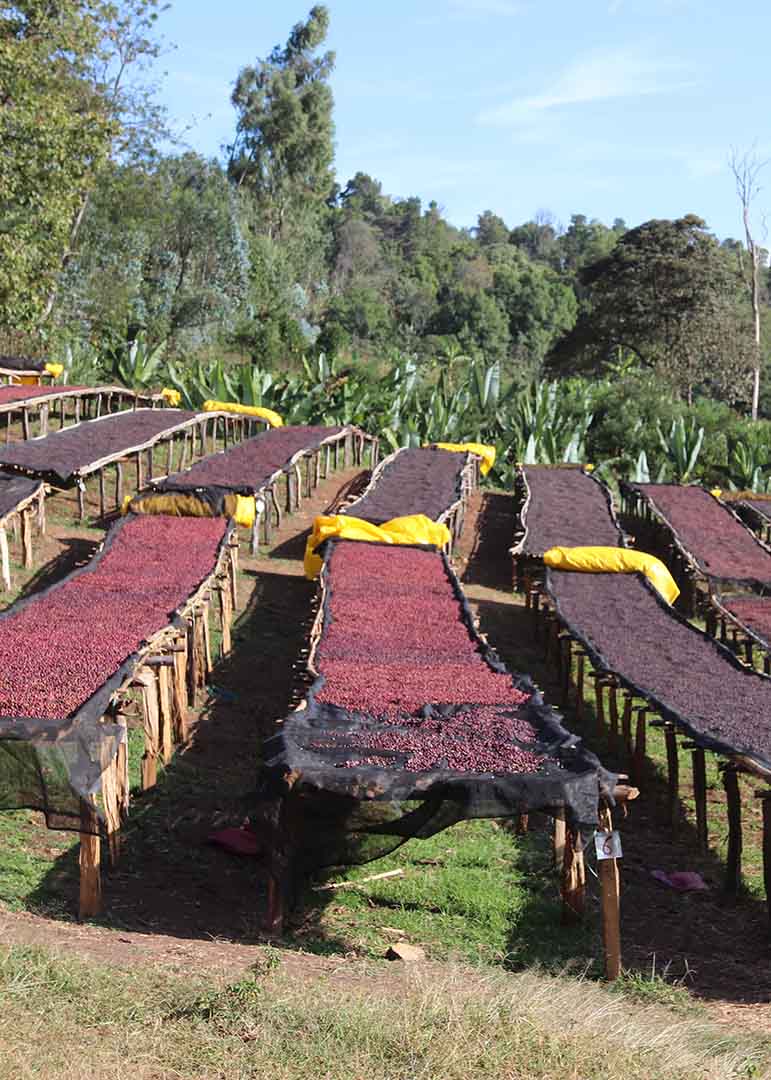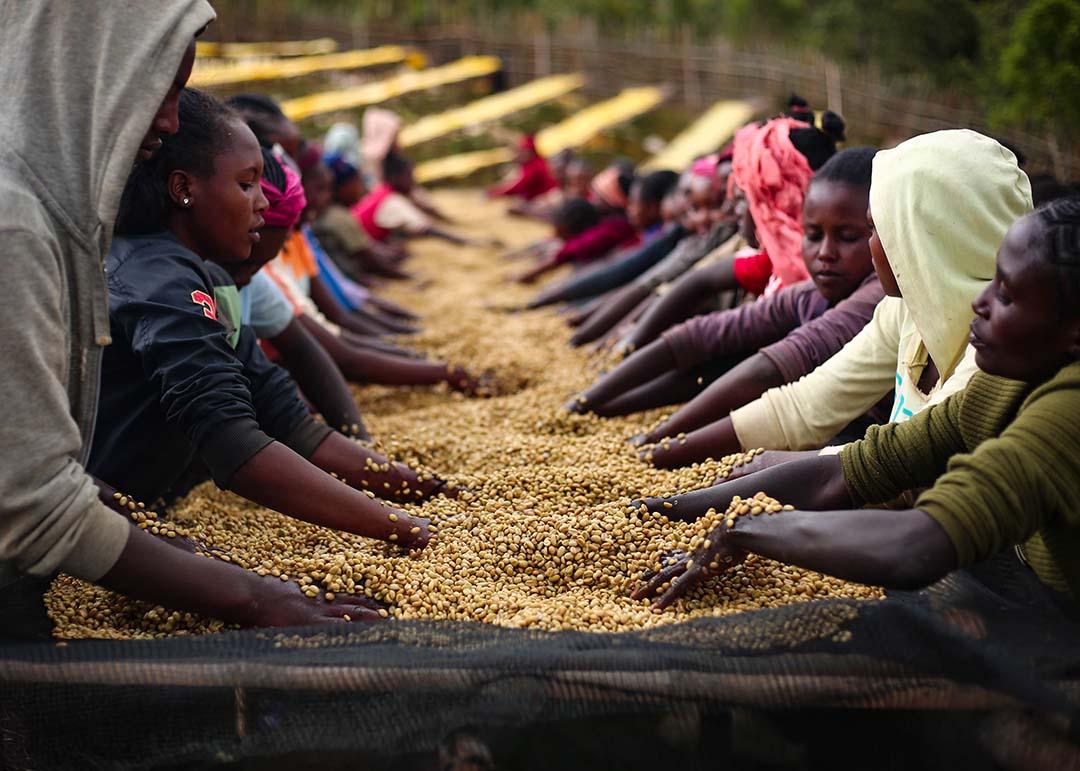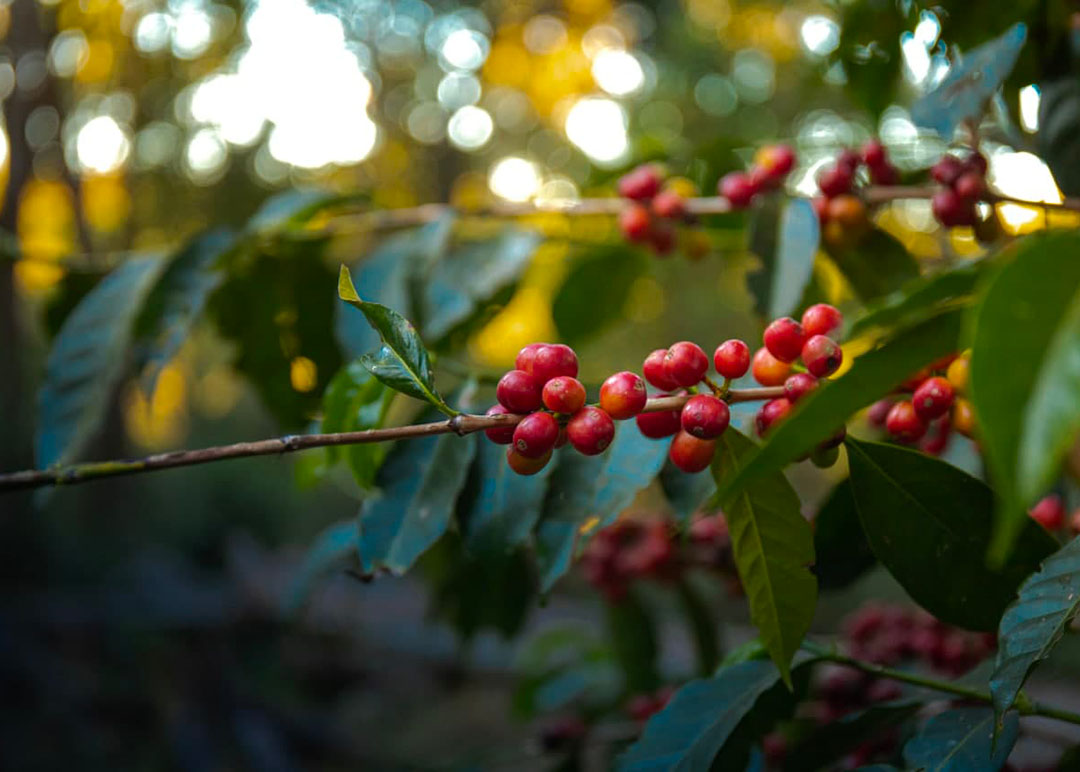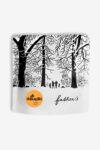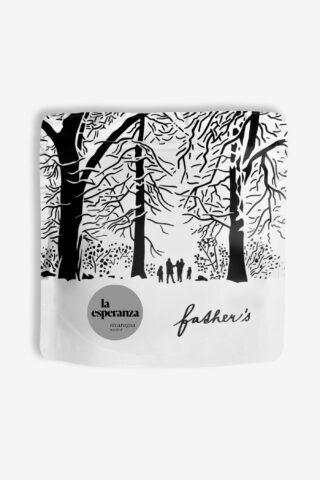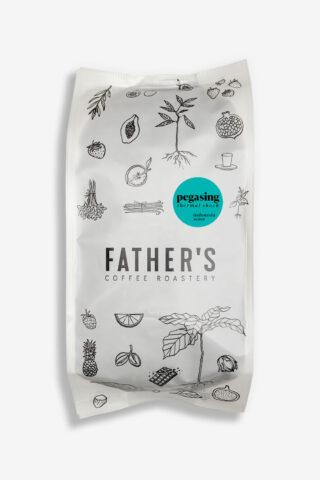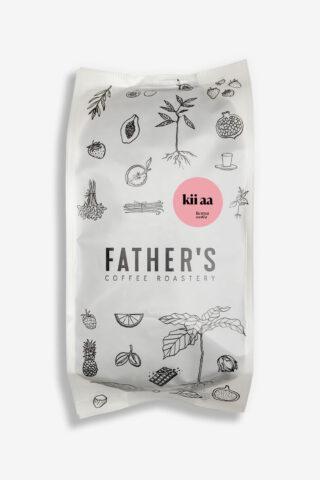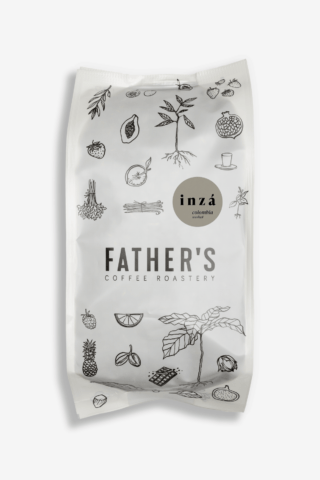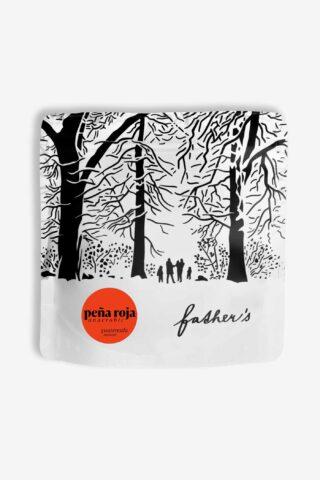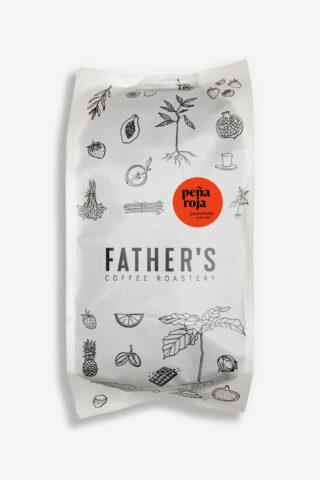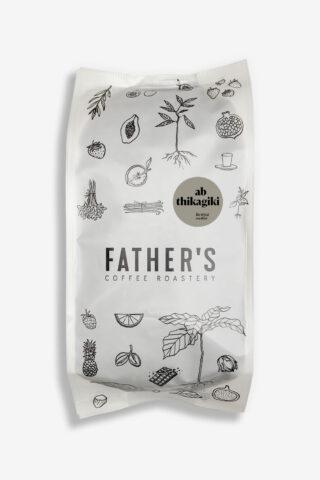Ethiopia – Lalesa
€ 17.47 – € 104.95
Country: Etiopie
Region: Lalesa, Gebed
Station: Lalesa Site
Altitude: 2150 – 2200 m. a. s. l.
Varietal: Heirloom
Processing: natural
Taste: Blueberries, lemon, cheesecake
On farms in the Lalesa area, coffee grows under the shade of massive Ensete banana trees, whose pulp is used to make the traditional dish Kocho (Kočo). The leaves, up to a meter wide and two meters long, are used for wrapping food, but most importantly, they provide excellent shade for the coffee plants. Growing in a shaded environment is ideal for coffee trees, as it enhances the quality of the coffee and positively impacts the environment.
PRODUCENT
Etiopská produkce kávy je výrazně ovlivněna třemi hlavními sezónami v zemi. Sezóna Bega (říjen-leden) je dlouhé suché období, klíčové pro sklizeň a zpracování kávy. Sezóna Belg (únor-květen) přináší první deště, nezbytné pro kvetení kávovníku a počáteční vývoj plodů. Sezóna Krempt (červen-září) je charakteristická silnými bouřemi z východu, zásadními pro pozdější fáze vývoje a zrání kávových plodů. Koncem září deště náhle ustávají, což umožňuje dozrávání kávových plodů a vede k rušnému období sklizně v listopadu.
Ephtah Specialty Coffee se zaměřuje na budování udržitelných dodavatelských řetězců a podporu žen v kávovém průmyslu. Farma Lalesa, vlastněná společností Ephtah, se rozkládá na 3,5 hektarech v nadmořské výšce 2150-2200 m n. m. a zaměstnává až 250 pracovníků během sklizně. Společnost Eptah zde vybudoval největší sušící stanici v oblasti Gedeb.
Zpracování
Kávové třešně jsou nejprve zprocesovány “floatací”. Proces floatace spočívá v ponoření kávových třešní do vody, přičemž nezralé nebo poškozené plody vyplavou na hladinu a jsou odděleny od kvalitních, které klesnou ke dnu. Poté jsou umístěny na sušící postele po dobu 12-15 dnů. Zelená zrna jsou ručně vybírána místními ženami. Po usušení a uskladnění je káva transportována do Moplaco v Gerji, Addis Abeba, a následně vlakem do Džibuti k exportu.
Společnost Ephtah realizuje několik sociálních a environmentálních projektů. Mezi ně patří například otevření denního centra pro děti farmářů v Gedebu a zapojení místních farmářek v rámci programu Ama Commitment, který podporuje ženy v tomto odvětví.
Odrůda
V oblasti se pěstují původní etiopské odrůdy (“Heirloom”), které jsou pěstovány ve stínu stromů, především Ensete (falešný banánovník). Tyto původní etiopské odrůdy jsou ceněny pro svou komplexní chuť a adaptabilitu na místní podmínky. Kávovníky rostou v nadmořské výšce 2150-2200 m n. m., což přispívá k rozvoji jedinečného chuťového profilu.
Kromě kávy farmáři také produkují Ensete, které se používá k výrobě místního pokrmu zvaného Kocho.
We work with several couriers worldwide, the table HERE specify the conditions for each country.
If your country is not available please send us an email to info@fathers.cz.
Related Products…
Country: Indonesia
Region: Pegasing
Processing station: Team Pegasing
Altitude: 1300-1500 masl
Variety: Tim Tim & Gayo 1
Processing: natural
Taste profile: cherries, dry red wine, orange
The natural process is just one of the ten processing methods carried out by the producer Hendra of Pegasing station. The beans were grown at high altitudes by the best farmers in the area and after harvest, they were dried on raised beds for 20 days.
Country: Nicaragua
Region: Mosonte, Nueva Segovia
Farm: La Esperanza
Altitude: 1650 m.a.s.l.
Variety: Red Catuai
Processing: washed
Taste profile: Hazel nut, blooms, black tea, chocolate
Country: Indonesia
Region: Pegasing
Processing station: Team Pegasing
Altitude: 1300-1500 masl
Variety: Tim Tim & Gayo 1
Processing: thermal washed
Taste profile: pistachio cream, cherries, lime Indonesia Pegasing was grown at high altitudes and processed with the washed method. That gives the coffee a clean and sweet taste of cherries, hibiscus, lime, and cascara. It was grown by the best farmers and processed at the Pegasing station by Hendra who’s renowned for his liking of experimentation with coffee processing methods.
Country: Nicaragua
Region: Mosonte, Nueva Segovia
Farm: La Esperanza
Altitude: 1650 m.a.s.l.
Variety: Red Catuai
Processing: washed
Taste profile: Hazelnut, round plum, black tea, chocolate
Our decaffeinated coffee tastes like a fresh orange cake, cane sugar, and white tea. It was processed naturally and then decaffeinated using natural sugar cane method. You can read more about this great method in the article on the blog here.
A cup of this coffee can easily become your pre-sleep ritual. Its name, ATUNKAA, translates to “sleep and sleepy dreams.”
Country: Colombia
Region: Piendamó, Cauca
Farm: Siruma Coffee Farms
Altitude: 1700-1900 m.a.s.l.
Variety: Castillo, Caturra, Colombia
Processing: natural – sugar cane decaf
Taste profile: orange cake, cane sugar, white tea
Country: Kenya
Region: Kibugu, Embu
Station: Kii
Altitude: 1800 m. a. s. l.
Varietal: SL34, SL28
Processing: washed
Tasting notes: blackcurrant, gooseberry, black tea
Don’t know which filter coffee to choose? ☕
Maybe the sample box containing 5x60g of coffee can help you. Its contents are continuously updated according to the coffees currently available.
You can order the sample box for your home, invite your friends, and organize cupping. This can help you find out what coffee you like best and make ordering easier in the future. Or you can get it as a gift, wrapped in our coffee-world illustration bag.
You’ll soon learn how to make cupping at home on our blog.
Currently, our Sample Box consists of:
Uganda – Zebigi
Ethiopia – Lalesa
Indonesia – Pegasing Anaerobic
Indonesia – Pegasing Natural
Kenya – Thikagiki AB
Country: El Salvador
Region: Ahuachapán, Los Naranjos
Farm / Producer: Los Angeles / Los Naranjos
Altitude: 1750 m.a.s.l.
Variety: Pacamara
Processing: Anaerobic Natural
Taste profile: Pancakes with raspberries and maple syrup
Discover the exceptional Pacamara from a Los Angeles farm in El Salvador. It is processed using anaerobic fermentation, which gives it a unique flavor profile—sweet notes of pancakes with raspberries and maple syrup. Lovingly cultivated by the Velásquez family, this coffee combines the highest quality, environmental sustainability, and social impact.
Country: Colombia
Region: Inzá, Cauca
Processing station: Regional Inzá
Altitude: 1500 – 2100 m.a.s.l.
Processing: washed
Variety: mix of varieties
Taste profile: rose hip tea, lime, tangerine fresh
The municipality of Inzá, in the province of Cauca, is situated high on the Colombian plateau known as the ‘Macizo Colombiano.’ Inzá is known for its rich indigenous history and great coffee.
Country: Indonesia
Region: Pegasing
Processing station: Team Pegasing
Altitude: 1300-1500 masl
Variety: Tim Tim & Gayo 1
Processing: anaerobic natural
Taste profile: milk chocolate, red apple, oolong
Anaerobic fermentation is just one of the ten processing methods carried out by the producer Hendra of Pegasing station. The beans were grown at high altitudes by the best farmers in the area, fermented in plastic bags for 48 hours, and then dried on raised beds for 20 days.
Country: Guatemala
Farm: Peña Roja
Varietal: Caturra, Bourbon
Processing: Anaerobic natural
Taste:
Country: Kenya
Region: Kiriaini, Muranga
Station: Kiriaini
Altitude: 1700 m. a. s. l.
Varietal: SL 28, SL 34
Processing: washed
Taste: Vanilla, lime, rhubarb pie


